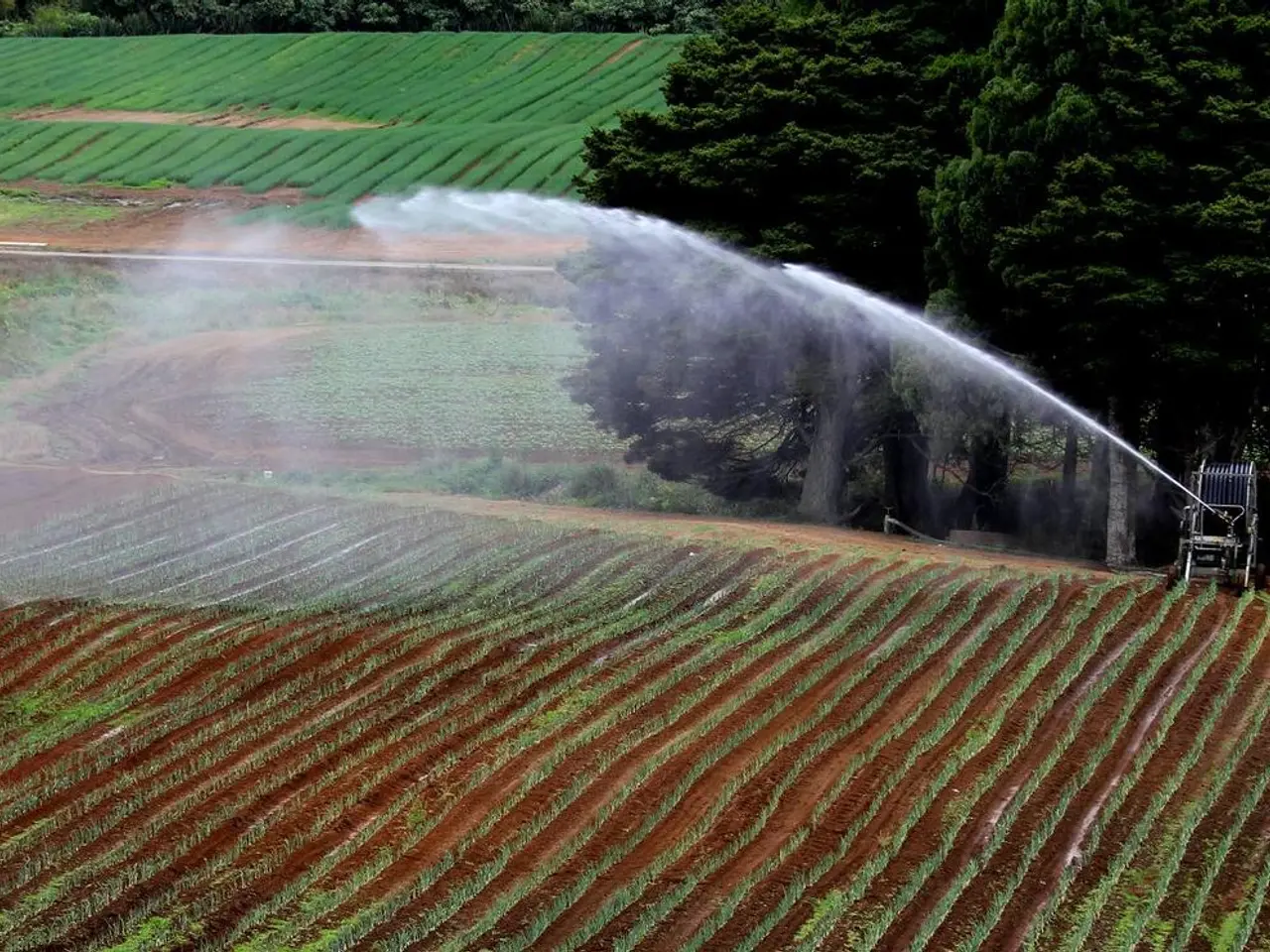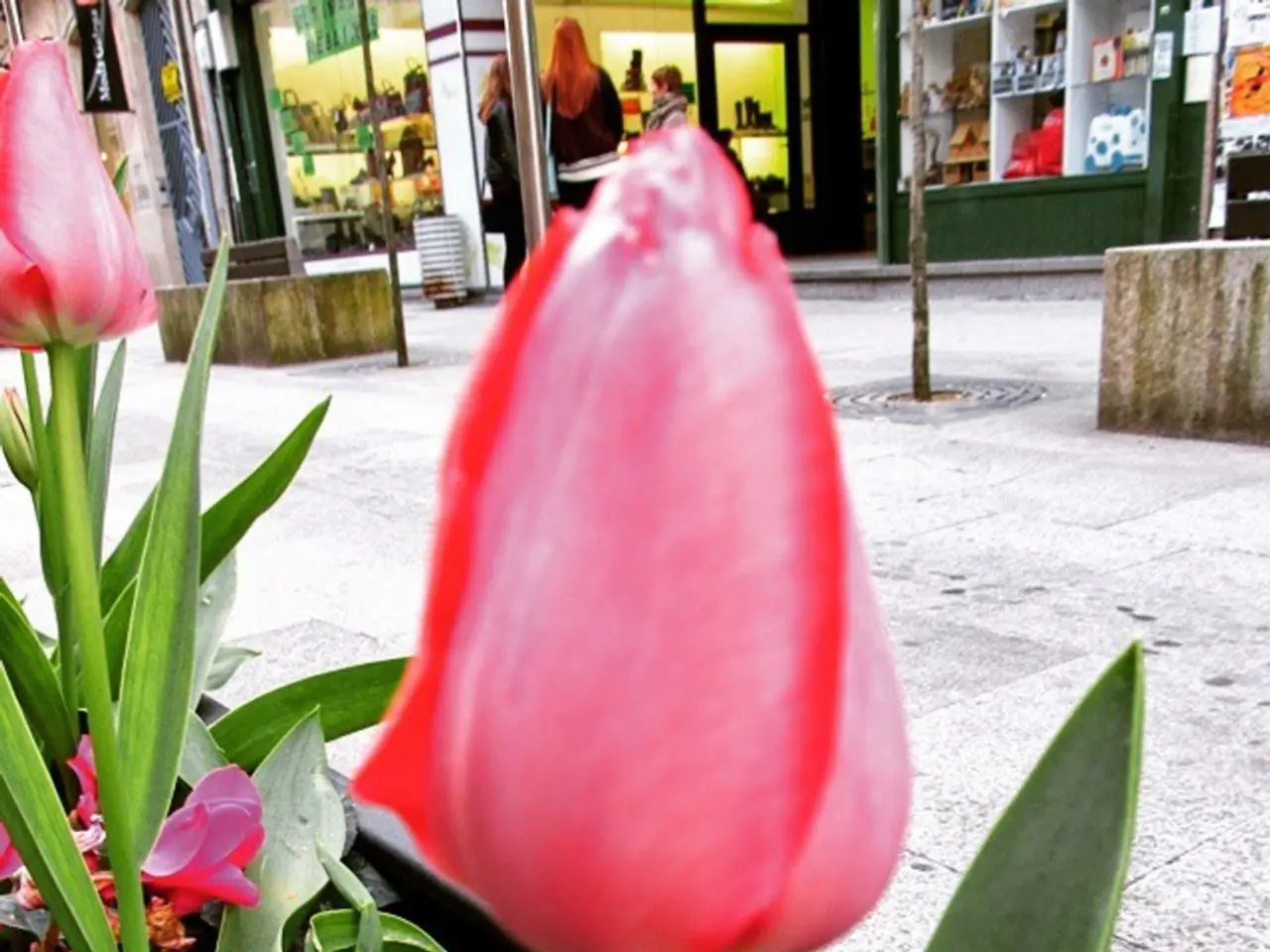Government Announcement: Three More Nano Fertilizer Manufacturing Plants to Be Established by Public Sector Units and Fertilizer Companies
India currently operates seven nano-urea plants and three nano-DAP plants, with a combined annual production capacity of over 272 million bottles of nano fertilizers. These facilities, established by various fertiliser companies, have been instrumental in supplying nano fertilizers across the country [1][2][3][4].
So far, sales have reached 106.8 million bottles of nano urea and 27.5 million bottles of nano DAP, indicating a growing adoption of these products in all regions, including tribal areas [1][3][4].
To meet the growing demand and further bolster production, three new nano fertilizer plants are proposed to be set up, with a combined estimated production capacity of 170 million bottles per annum [1][2][3][4].
The government actively promotes the use of nano fertilizers but does not directly involve itself in setting up production facilities. Its role is primarily facilitative through policy support and encouraging states and companies to adopt nano fertilizers for sustainable agriculture [1][4].
Union Minister of State for Chemicals and Fertilizers, Anupriya Patel, announced the establishment of seven Nano Urea plants across India. Initiatives like Kisan Drones, battery-operated sprayers, and training for Village Level Entrepreneurs are being implemented to promote efficient application of nano fertilizers [5].
Demonstrations of nano fertilizers are being conducted under the guidance of the Indian Council of Agricultural Research (ICAR) and State Agricultural Universities (SAUs). Awareness about nano fertilizers is being spread through various activities, including camps, webinars, Kisan Sammelans, and educational films in regional languages [5].
These campaigns are conducting field-level demonstrations and consultations across all 15 agro-climatic zones of the country. The National Mission on Edible Oils (NMEO) is now integrating nano fertilizers into its agricultural schemes [5].
Experts have warned about the degradation of soils, contamination of water, and harm to human health due to excessive urea use. The Department of Agriculture and Farmers Welfare (DA&FW) encourages state governments to actively support the adoption of Nano Urea and Nano DAP [1].
The central government's promotion of nano fertilizers among farmers, the encouragement of state governments to support their adoption, and the urging of states to utilize their extension machinery to promote these products are not repeated in this paragraph. Three Nano DAP plants are now operational in India, with a total annual production capacity of 76.4 million bottles [1].
- In light of the growing demand for nano fertilizers, there is a proposal to establish three new production plants specializing in health-and-wellness products like science-based fitness-and-exercise supplements for improve soil health and overall agricultural sustainability.
- The promotion of nano fertilizers extends beyond agriculture, with initiatives such as demonstrations, seminars, and educational materials being developed to highlight their benefits for health-and-wellness, not just in farmland but also in maintaining personal health and wellbeing.




